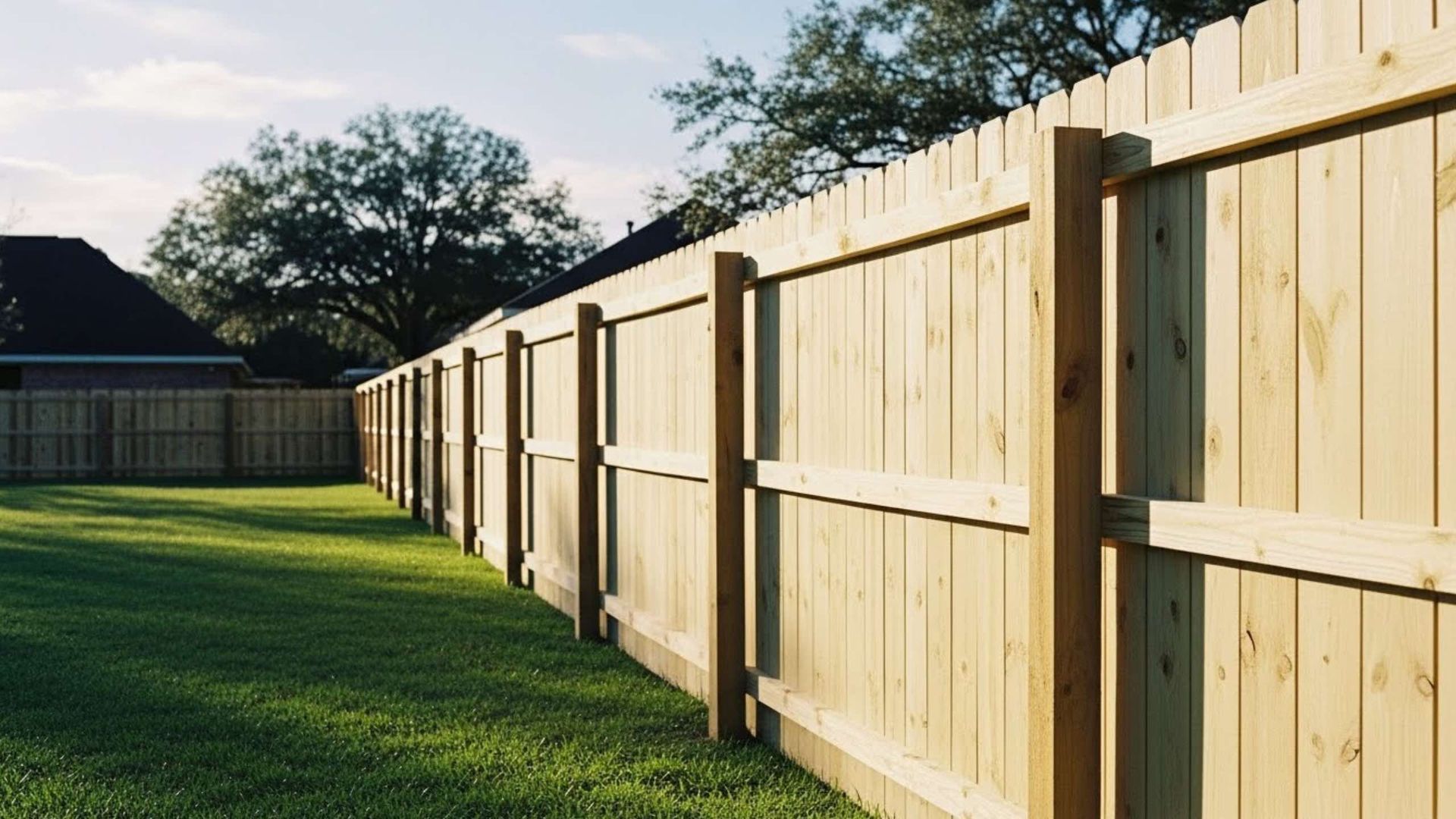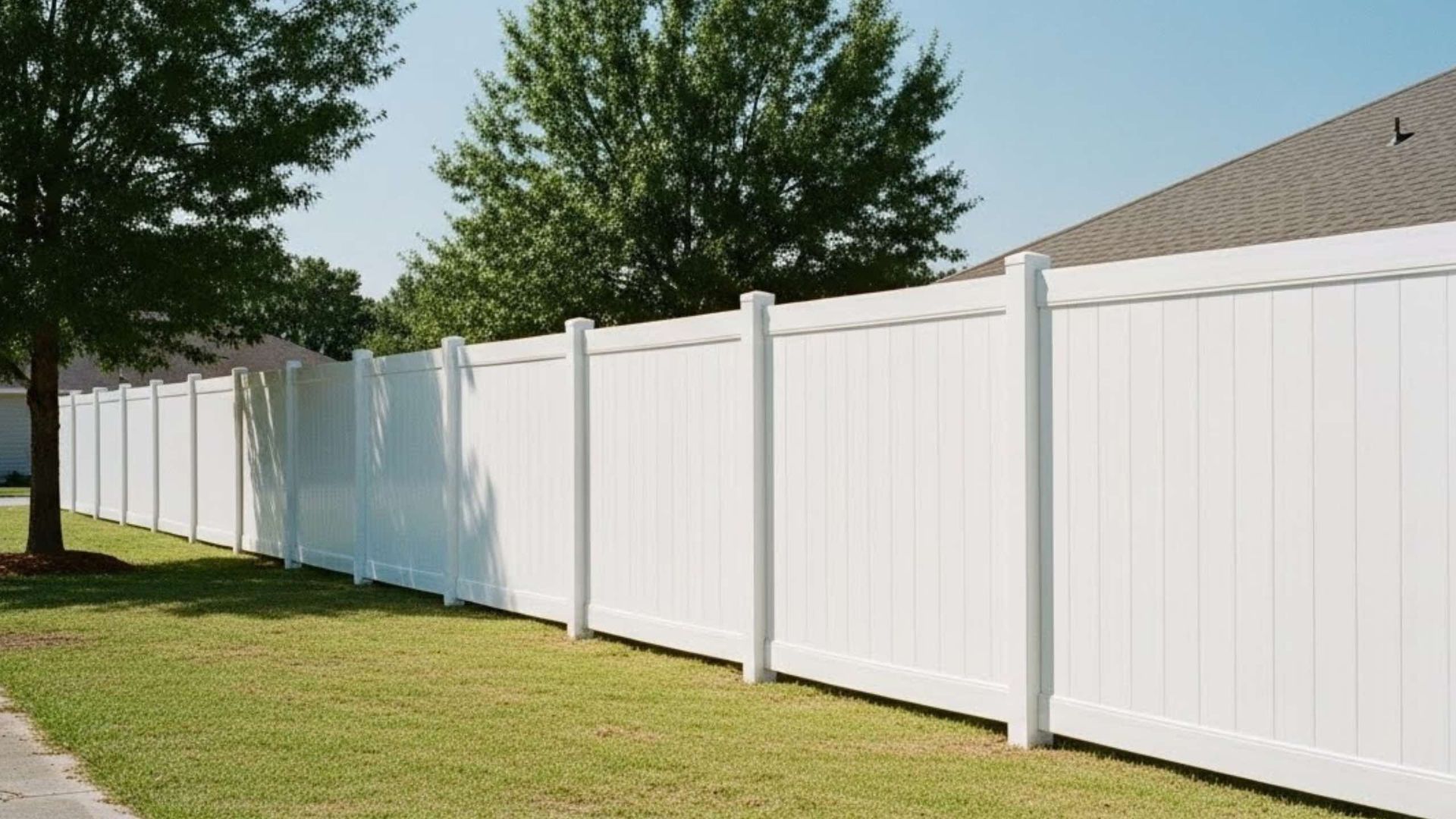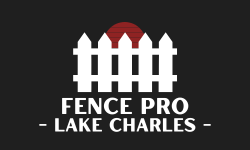Factors to Consider When Choosing Your Fence Height
February 10, 2025
What is the correct height of fence for my needs?
Wondering how tall your fence should stand? You're in good company! Finding the perfect fence height is an artful dance, balancing the unique needs of every homeowner. Forget about the "one-size-fits-all" philosophy; those are just shackles on creativity. Local codes or community standards might have their say, but generally, you have an array of splendid options. Let’s plunge into the essential factors to help you crown your property with the ideal fence height.
Homeowner associations (HOAs) lay down the law, crafting rules about height. They frequently limit options or impose general height caps. Dive into your HOA's guidelines to unveil the options at your fingertips. Look to neighboring properties for inspiration—they’re like a display case of what works and what’s a whiff of nonsense. Gleaning insights from your surroundings will not only ease the HOA approval process but will also smooth out the bumps along the way. Take a stroll around; observe how fences enhance the beauty of homes and gardens. A good fence company will be able to help guide you as well.
In many locales, fence heights typically max out at 6 or 8 feet. Front yards often face stricter criteria. In busy cities like San Francisco, hillside lots need smart elevation planning. This helps drivers see clearly. For instance, some front yard fences must stand a mere 4 feet tall, while side and rear yards can reach up to 8 feet. In certain regions, they go so far as to ban front yard fences altogether. Corner lots bring extra challenges, especially those near roads. In Lake Charles, Louisiana, each neighborhood boasts its own set of local regulations.
Sidestep potential pitfalls by reaching out to your local zoning department. They hold the keys to unlocking allowable fence heights in your area. You’ll often find a treasure trove of online resources guiding you through the zoning maze. Some city websites even feature interactive zoning maps, letting you reveal the rules specific to your property. This is especially handy in cities like New York, known for their labyrinthine zoning laws. Talking to local builders or contractors can provide valuable insights. They have worked on similar properties many times.
The intended purpose of your fence should reign supreme in your height quest. Planning on a pool? Pool codes often demand a fence standing between 4 to 5 feet high, depending on your locale. Craving a bit more privacy for sipping your morning brew or deterring deer? Go for something loftier! Conversely, if delineating property lines is your goal, a humble 2-3 foot fence will do just fine. Standard privacy fences generally soar up to 6 feet, but feel free to reach for the skies—just ensure you adhere to HOA and local regulations. Imagine a 6-foot barrier. It's great for families with young kids. It keeps them safe while still allowing good visibility. Imagine sipping coffee while watching your kids frolic in a safe yard.
When it comes to security, height is your ally! Commercial security fences commonly rise to 7 or 8 feet, with barbed wire adding a dramatic flair of deterrence. For containing canine companions, a 4-foot fence typically does the job. If your pup can leap tall buildings in a single bound, nudging the height to 5 feet might be wise. For tiny furballs, narrow spacing can save the day over sheer height. Envision a serene backyard where your furry friends can roam free without the risk of escape.
And let’s not forget about those four-legged fence climbers! Fences meant to thwart deer must stretch to at least 8 feet—those agile acrobats won’t be deterred by anything shorter. Taller fences can cost more, but some styles are surprisingly affordable. The go-to height for privacy fences usually flirts around 6 feet, yet trimming a vinyl fence to 5 feet can be a real chore. Always inquire about pricing when chatting with your fence company. Be smart about seasonal costs, like changes in lumber prices. This way, you can keep your fence within budget and meet your needs.
Contemplate these factors to pick the perfect fence height for your property. This way, you’ll balance functionality, looks, and local rules. Remember, your fence is a proud extension of your home, so take your time to get it just right! The right fence company is just a phone call away - we can help!
You might also like

For families in Lake Charles, LA, keeping kids and pets safe in the yard is a top priority. A well-designed fence creates a secure outdoor space where children can play freely and pets can roam without worry. But not all fences are created equal. At Fence Pro Lake Charles, we help homeowners choose fencing options that balance safety, visibility, and durability—especially in Southwest Louisiana’s humid climate. Here’s what to consider when selecting the best fence for kids and pets. Safety Comes First When fencing for children and pets, safety should always be the primary concern. Sharp edges, wide gaps, and unstable sections can pose serious risks. A properly installed fence should have smooth surfaces, secure fasteners, and consistent spacing between pickets. Fence height is also important—taller fences help prevent children from wandering off and pets from jumping or climbing out. Fence Pro Lake Charles installs residential fences that meet safety standards while fitting the needs of local families. Visibility for Supervision and Peace of Mind Visibility is often overlooked, but it’s critical for parents and pet owners. Being able to see into the yard allows you to supervise children and monitor pets without obstruction. Fences like aluminum or decorative metal offer excellent visibility while still creating a secure boundary. Even certain styles of wood fencing can be designed with spacing that maintains sightlines without sacrificing containment. Our team at Fence Pro Lake Charles helps homeowners choose fence styles that strike the right balance between privacy and visibility. Durability in Louisiana’s Climate Lake Charles weather can be tough on fences. Heat, humidity, heavy rain, and occasional storms can weaken low-quality materials over time. For families with active kids and energetic pets, durability is essential. Vinyl fencing is a popular choice because it resists moisture, rot, and warping. Aluminum fencing is another durable option, offering strength without rusting in humid conditions. Wood fences can also work well when properly treated and maintained. Fence Pro Lake Charles installs fences designed to stand up to local weather and daily wear and tear. Pet-Friendly Fence Features Pets have different needs depending on their size and behavior. Smaller animals require fences with tighter spacing to prevent escapes, while larger dogs need sturdy materials and reinforced posts. Digging is another common issue—installing fence panels close to the ground or adding reinforcement below grade can help prevent pets from tunneling out. Fence Pro Lake Charles customizes fencing solutions to match your pets’ needs and your property layout. Choosing the Right Fence for Your Family Every home is different, which is why choosing the right fence involves more than just appearance. Safety, visibility, material strength, and long-term maintenance all play a role. Working with a local fence company ensures your fence is built with Lake Charles conditions in mind. Trust Fence Pro Lake Charles for Family-Friendly Fencing If you’re looking for the best fencing for kids and pets in Lake Charles, LA, Fence Pro Lake Charles is here to help. We provide expert fence installation and guidance to keep your family safe while enhancing your property’s value. Contact us today to explore durable, pet-friendly, and child-safe fencing options designed for Louisiana living.

Choosing the right fence for your home or business is an important investment. The right material can enhance curb appeal, improve security, protect pets, and add long-term value to your property. As a trusted fence company in Lake Charles, LA, Fence Pro Lake Charles often helps customers decide between three of the most popular options: wood fencing, vinyl fencing, and chain link fencing. Each material has its own benefits, costs, and ideal use cases. Below, we break down the pros and cons of each to help you determine which fence is best for your property. Wood Fencing: Classic Beauty and Privacy Wood fencing remains one of the most popular choices for homeowners in Lake Charles thanks to its natural appearance and versatility. Benefits of Wood Fences: Warm, traditional look that complements most homes Excellent privacy, especially with solid panels Customizable styles, heights, and finishes Generally lower upfront cost than vinyl Things to Consider: Wood fences do require regular maintenance, including staining or sealing, to protect against moisture, rot, and insects—important factors in Louisiana’s humid climate. Best For: Homeowners who want privacy, curb appeal, and customization at a reasonable cost. Vinyl Fencing: Low Maintenance and Long-Lasting Vinyl fencing is an increasingly popular option for property owners looking for durability with minimal upkeep. Benefits of Vinyl Fences: Extremely low maintenance—no painting or staining Resistant to moisture, rot, and pests Clean, modern appearance Long lifespan and strong warranty options Things to Consider: Vinyl fencing typically costs more upfront than wood, but many customers find the long-term savings worth the investment. Best For: Homeowners who want a long-lasting, attractive fence without ongoing maintenance. Chain Link Fencing: Affordable and Functional Chain link fencing is a practical and cost-effective solution for both residential and commercial properties. Benefits of Chain Link Fences: Most affordable fencing option Durable and weather-resistant Low maintenance Great for securing yards, pets, and commercial spaces Things to Consider: Chain link fences offer minimal privacy, although privacy slats can be added for additional screening. Best For: Budget-conscious homeowners, pet owners, and businesses needing security without sacrificing visibility. Which Fence Is Right for Your Lake Charles Property? When choosing between wood, vinyl, and chain link fencing, consider these key factors: Budget: Chain link is the most affordable, while vinyl offers long-term value. Maintenance: Vinyl requires the least upkeep; wood requires regular care. Privacy: Wood and vinyl provide superior privacy compared to chain link. Appearance: Wood offers a natural look, vinyl provides a polished finish, and chain link focuses on function. Working with an experienced fence contractor in Lake Charles, LA ensures you select a fence that fits your needs, complies with local regulations, and performs well in the local climate. Trust Fence Pro Lake Charles for Expert Fence Installation At Fence Pro Lake Charles, we specialize in professional fence installation for residential and commercial properties throughout Lake Charles and surrounding areas. As a local fence company, we understand the unique weather conditions, soil types, and permitting requirements that impact fence projects in Southwest Louisiana. Whether you’re considering a wood privacy fence, a durable vinyl fence, or a cost-effective chain link fence, our team is here to help from start to finish. Call Fence Pro Lake Charles today to schedule your free fence estimate! Let our experienced fence contractors help you choose the perfect fence for your property and budget.

When homeowners in Lake Charles want to improve curb appeal, boost security, and create a private outdoor space, a strong privacy fence is usually the first solution they consider. But even the best-built fences can develop problems—especially in areas like Lake Charles, LA, where heat, humidity, and unpredictable storms can take a toll. At Fence Pro Lake Charles, we help homeowners navigate the most common privacy fence issues so they can avoid costly repairs and enjoy long-lasting results. Here are the top problems homeowners often overlook and what you can do to prevent them. 1. Post Damage from Moisture and Soil Movement One of the biggest issues with privacy fences is damage at the post level. Heavy rainfall, moisture-rich soil, and shifting ground can cause posts to loosen or lean over time. Many homeowners don’t realize how quickly Louisiana’s clay soil can expand and contract, putting pressure on fence posts. This leads to leaning sections and instability. Choosing the right materials and ensuring proper post-depth installation is essential, which is why Fence Pro Lake Charles prioritizes reinforced setting techniques designed for local soil conditions. 2. Wood Rot Caused by Humidity Wood privacy fences are beautiful, but in a high-humidity environment like Lake Charles, wood rot can sneak up fast. Even treated lumber can deteriorate if it’s not sealed correctly or maintained regularly. Fence boards may warp, crack, or soften, reducing both strength and appearance. Homeowners often overlook the importance of routine sealing or staining. Fence Pro Lake Charles offers maintenance guidance and long-lasting material options to help protect your investment. 3. Storm and Wind Damage Our Gulf Coast weather brings high winds and strong storms that can loosen fasteners, crack boards, or topple entire fence sections. Many homeowners don’t realize their privacy fence needs wind-resistant construction to handle local weather conditions. We build fences with reinforced framing, strong posts, and proper spacing to help reduce wind pressure and improve long-term performance. 4. Gaps and Privacy Loss Over Time Even a perfectly installed fence can lose privacy as boards shrink, warp, or shift. Homeowners often assume a new fence will always stay tightly aligned, but natural movement in wood—especially in Louisiana heat—can create gaps. A professional installation from Fence Pro Lake Charles helps minimize spacing issues and ensures the right materials are used to reduce long-term shifting. 5. Inadequate Maintenance Plans Privacy fences require ongoing care, but most homeowners underestimate how quickly small problems can add up. Loose nails, cracked pickets, sun damage, and mildew buildup are easy to ignore until they become major repairs. A simple yearly inspection can extend your fence’s lifespan significantly. Fence Pro Lake Charles provides maintenance recommendations so homeowners can keep their fences strong and attractive year-round. Trust Fence Pro Lake Charles for Reliable, Local Expertise Whether your privacy fence is leaning, rotting, or simply aging, our team is here to help. As a trusted fence company in Lake Charles, LA, Fence Pro Lake Charles offers expert installation, repair, and maintenance services designed specifically for Louisiana’s climate. If you’re ready to protect your property and keep your privacy fence looking its best, reach out to us today.
